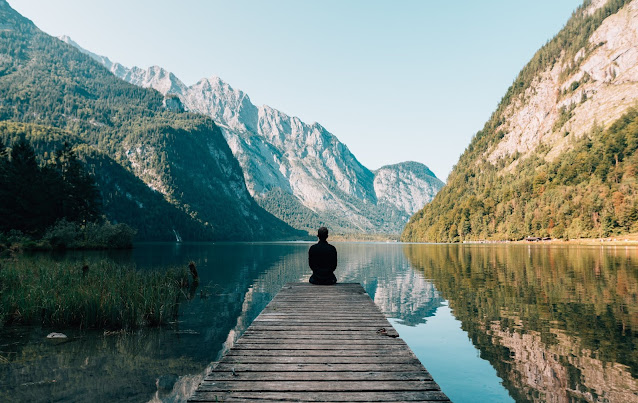During the past decade or so, we've had a craze with mindfulness. Everyone from hospitals to health spas and from schools to businesses are incorporating mindfulness as a practice to reduce stress and anxiety, to be more present, to be more productive, and to better cope with physical health and mental problems. I am definitely an advocate for mindfulness, but there is a missing link with what is going on in the marketing of this practice by many teachers.
Too many people are sensationalizing and glamorizing this practice and using it as a selling feature as an end-all to all of life's troubles. I've seen this happening for over a decade now and it's only getting worse. If you go back to many of my past blog posts, you will see the pattern that I'm talking about. The word mindfulness is being considered the end-all to life's turmoils. "If you simply practice mindfulness, your life will magically change."
I guess like anything else in this world, once a holistic approach is shown to provide inner wellness and it gains popularity because it's innovative and trendy to the West, a capitalist economy is going to latch on to it and do its best to milk it dry. We've already done this to the practice of yoga.
Shakti Mhi from Prana Yoga College, a yoga teacher training program I completed a few years back, discussed this in detail. She ended up leaving North America because it was difficult for her to see so many yoga businesses manipulating the practice into a commodity to sell at outrageous prices. Not only that, but many people were getting socially conditioned to the trendy forms of yoga rather than truly understanding what it was naturally intended for. Fitness enthusiasts changed the practices intrinsic nature. North American yoga was no longer about connecting to your inner essence. It became a competition to see how one could twist their body into outrageous positions losing the heart of what yoga actually meant.
Is this happening to the practice of mindfulness? I'm not here to condemn; I'm here to create awareness and plant seeds for others to consider. Why? Because too many of us get caught up easily in the socialized system and take it as fact. Too many don't question what's going on in their own thoughts and feelings let alone in their environment.
Mindfulness is important to stay present to our essence. It is also important so that we stay in touch with the thoughts flowing in our head, to be aware of the emotions that rise in our body, and to be present to our environment at a deeper level. From this perspective, we are able to ask good questions, reflect deeply, move beyond what's called fear without resisting and remain unattached, while continuing to move through life with a sense of flow and harmony. Your shoulders are no longer at ear-level; they drop as you become more mindful and present.
However, mindfulness is not the cure all for self-centered living. It's your connection to your inner essence and higher source when done correctly. At the same time, it's a point to intersect. A call to action. As
Marianne Williamson stated, "Evolved and involved." Yes, mindfulness is about self-connection and self-healing, but it is greater than that if you are truly listening. When you are connected, you realize you, yourself alone, are not at the center of healing or creation. Through mindfulness meditation, you receive information if you are open, receptive, and listening; if you are truly present and aware. Once the information is received, you then take courageous action because life is no longer about you. It is about the "bigger" picture. If you truly want to live an enlightened life, you lose your North American value of independence and live your life serving the bigger picture. This is the missing link to today's mindfulness and yoga practices. Many somehow think that if they simply practice mindfulness without action that all is well around them. Self-gain without conscious awareness of the bigger picture is rampant, and that's a North American capitalistic and consumerist value we need to break.
Let's Connect!
Go to
DesireeLeigh.com to pick up your FREE eBook of the 7 easy to apply Life-Changing Steps to gain confidence, build better relationships, and achieve your dreams.




Comments
Post a Comment